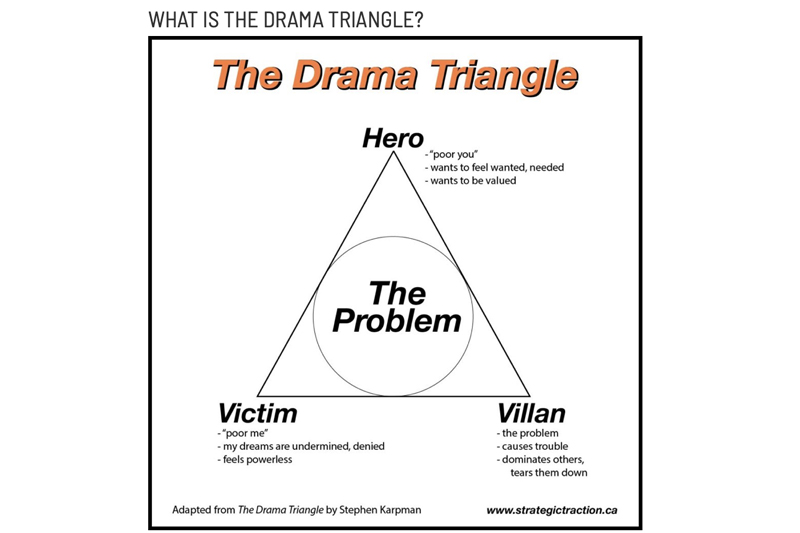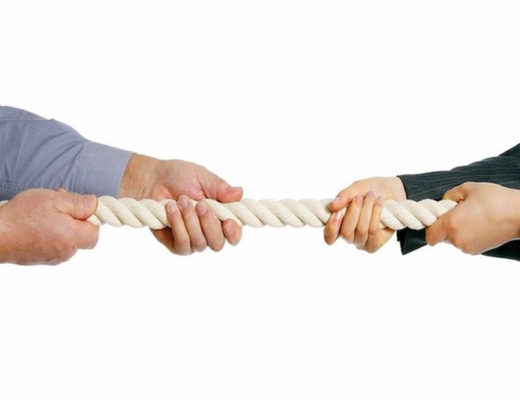The Drama Triangle is a framework used under the Courageous Leadership Platform to expand awareness around how we relate.
To consistently experience business and life in an enriching and satisfying manner, learning how to successfully be in relationship with everything around us, most importantly our relationship to self, is paramount to our sense of freedom, joy and well being.
In my coaching experience, to some degree, we all operate in the drama triangle until we become aware of it which then gives us new choice points.
Operating from within the drama triangle, we take on different roles. There is a hero/rescuer, a persecutor/villian and a victim. These roles are interchangeable. You could initially be playing the role of rescuer and flip to playing the persecutor.
Let’s apply this concept using the above email example. In this example, the emails seemingly become the persecutor with the power to make us feel overwhelmed and frustrated first thing in the morning.
You, as the reader of the emails, would be starring in the role of the victim experiencing the feelings of overwhelm, frustration or perhaps powerlessness and the role of the rescuer might be any number of things from your cup of coffee which provides a ‘pick me up’ or perhaps a scroll through social media, all in an attempt to help us feel better.
You see, it’s often some external means, commonly known as vices, that we reach for to distract ourselves from feeling the pain inflictated by operating in the drama triangle.
You may perhaps end your stressful day with a glass of wine or scotch to rescue you from feeling burnt out. There’s no judgement here about any of this. The critical point here is our lack of awareness around our choices and how we feel as a result of those choices.
The problem isn’t in drinking coffee or wine. The problem ensues first in thinking we need to reach outside of ourselves to feel better then tending to beat ourselves up for making those very choices. For example, we might not sleep as well or our digestion might become compromised as a result of those choices. This can lead to brutally judging ourselves about our choices or feeling deep guilt. This is an example of our inner persecutor.
This dynamic causes a spilt in our energy creating conflict around what we want and actually having it or being able to enjoy what we do have. This split wreaks havoc on our ability to achieve our goals and desires easily in joy and fulfillment . It’s like having one foot on the break and one on the gas giving new meaning to making things more difficult for ourselves.
The very thing that we think is rescuing us (making us feel better) in fact becomes our persecutor. In the end, this dynamic can leave us feelingl deflated, disempowered and even helpless.





